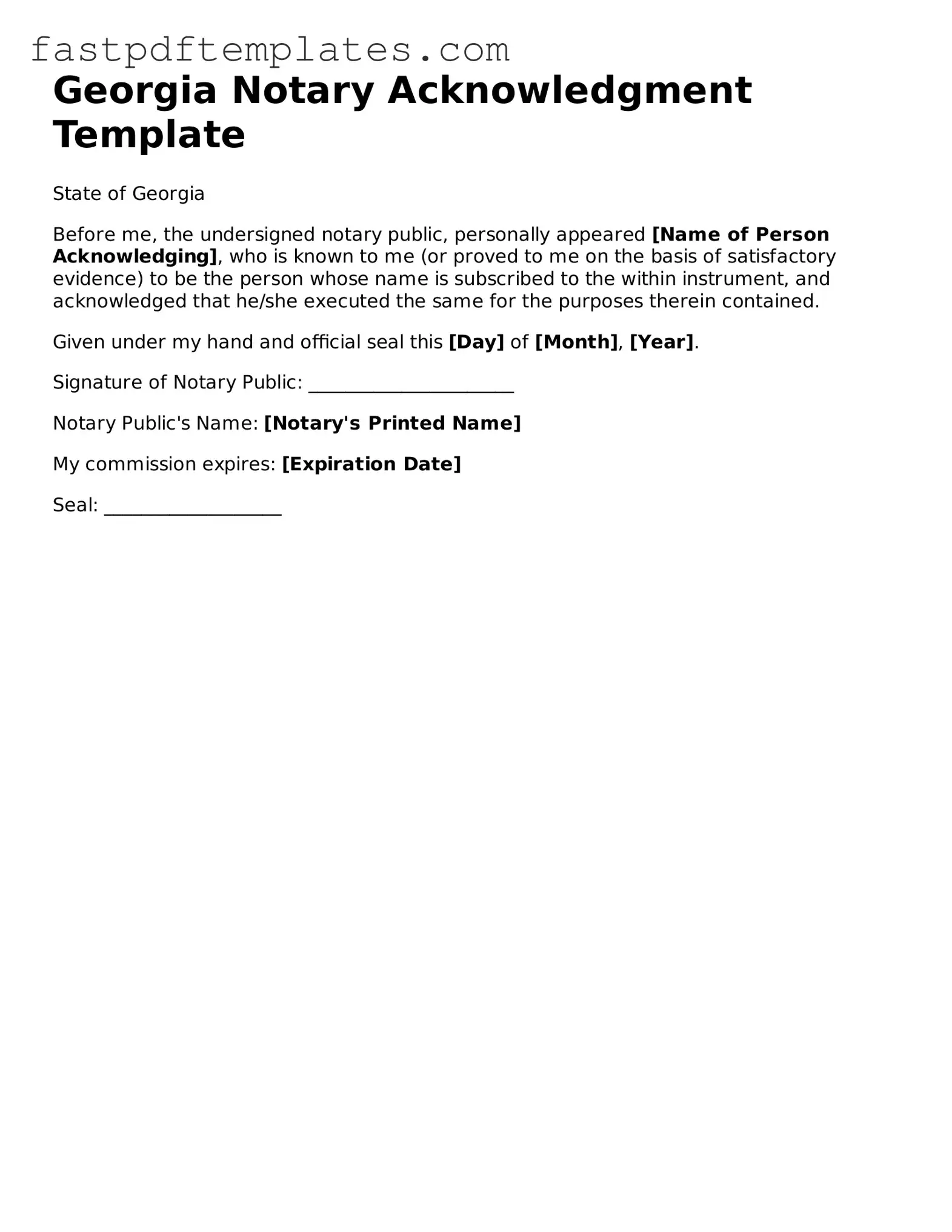Attorney-Approved Georgia Notary Acknowledgement Document
The Georgia Notary Acknowledgement form is a legal document used to confirm the identity of individuals signing a document. This form provides assurance that the signatures are genuine and that the signers acted voluntarily. Understanding its purpose and proper use is essential for anyone involved in legal or financial transactions in Georgia.
Access Document

Attorney-Approved Georgia Notary Acknowledgement Document
Access Document
Your form still needs completion
Complete your Notary Acknowledgement online and download the final PDF.
Access Document
or
Click for PDF Form
